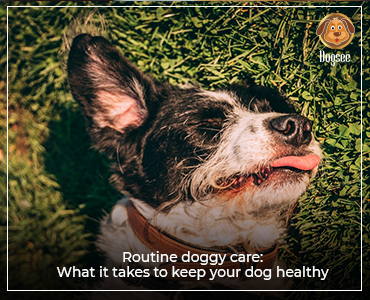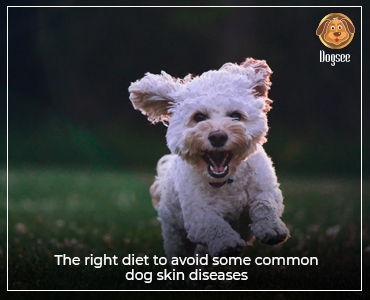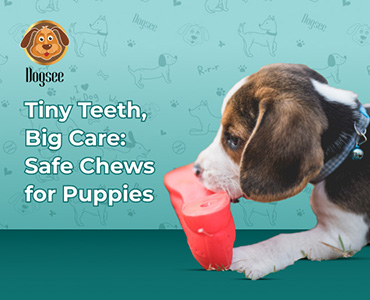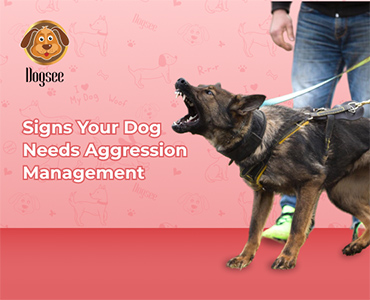
Everyone gets old, our playful, naughty & lovely Doggo’s too!
Aging in Dogs should be viewed as a natural part of the process. It can be heartwarming and heartwrenching to see the signs of their golden years.
“Whether it's a touch of gray around their muzzle, wrinkles appearing on their cute little faces, or a slower gait as they go about their daily routines, it's a reminder that our dogs are not immune to the passage of time”
Their life can be summarised into 4 stages: Puppy, young adult, mature adult, and senior.
As pawrents, it is critical to consider and learn about senior dog health problems and solutions.
So that, with a little extra love and care, our senior dogs can continue to thrive and be a source of joy and comfort in our lives!
Let’s understand this a little deeper.

Signs of Aging in Dogs
Different breeds and sizes of dogs age at different rates.
For example, a Chihuahua may have a lifespan of 14-18 years, while a German Shepherd may have a lifespan of only 9-13 years.
This means that a Chihuahua may not start to show significant signs of aging until it is around 10 years old, whereas a German Shepherd may start to show signs of aging as early as 7 years old. In addition to size, different breeds also have different rates of aging due to genetics and biology.
Dog old age symptoms could be identified by keeping a check on these Physical and mental aging signs. This will help one to detect and ensure the best care as they age.
Physical Signs of Aging
Vision Loss
Unpleasant breath
New lumps or bumps
Increased / Exhausted Urination
Reduced Appetite
Not active & cheerful
Lessor self-grooming
Mental Signs of Aging
Increased anxiety
Not responding to commands appropriately
Change in the sleep patterns
Excessive howling and barking
Before we explain senior dog health care measures, let’s also look at common ailments our Doggos experience during their old aged days.

7 Common Health Problems faced by Older Dogs
1. Hearing & Vision Loss
Tissue degeneration is mainly the cause of deafness and blindness for Doggos during old age. Senior dogs also develop cataracts, which are like cloudy layers over the eye lens. On the other hand, issues arising from genetics to chronic ear infections cause hearing loss and deafness.
Yet, dogs can deal with both problems to some extent. Thanks to their other physical traits, such as their excellent sense of smell and their capacity for vibration detection, which enable them to go about their daily lives.
2. Obesity
Unlike during their young age, our cuties are not very active when they are seniors. The mismatch in calories taken in and burned off also leads to Obesity.
It further paves way for a number of diseases like diabetes, heart and joint-related health problems. Knowing the diet for senior dogs and setting a regular exercise routine helps in adopting a healthy lifestyle.
You might also like to read about: 12 Health Issues in Dogs due to Obesity & Benefits of Hypoallergenic Diet.
3. Dementia
Dementia in Dogs is also called Canine Cognitive Dysfunction (CCD). As they age, their cognitive functioning starts to decline. Increased barking, forgetting the well-learned commands, getting lost in familiar places or surrounding, changing bathroom routines, etc are a few signs.
As there is no cure for it, following the vet’s medical advice and including antioxidant-enriched foods in the diet helps.
4. Joint Problems
According to Arthritis Foundation, one in five dogs suffers from canine arthritis. Symptoms of joint problems in aging dogs can include:
Limping or favoring one limb
Stiffness or difficulty standing up or lying down
Decreased activity or exercise tolerance
Reluctance to climb stairs or jump
Pain or discomfort when touched near the affected joint
Specialized exercises or gentle ones like slow walks or swimming, can help improve joint mobility and reduce pain. Also, maintaining a healthy weight can help reduce the stress on your dog's joints.
These measures will help reduce pain and slow the progression of this disease.
5. Cancer
Lumps and bumps are prone to grow on old-aged Dogs. Not all are cancerous. they can develop in any part of the body, including the bones, skin, organs, and lymphatic system.
Age, breed, exposure to toxins and genetics could be considered as several risk factors that can increase a dog's likelihood of developing the disease.
It's essential to keep an eye out for any changes in your dog's health or behavior, as early detection and treatment of cancer can significantly improve its prognosis.
Regular visits to the vet, including routine check-ups and screenings, can help to identify cancer early on and provide your dog with the best possible care.
6. Heart Problems
Like humans, our pets can also suffer from heart problems. A common health issue is Congestive Heart Failure, where it becomes difficult for a dog’s heart to pump blood across the body.
Here are a few symptoms to spot this disease early on and give your companion the pawfect care.
Getting tired easily
Difficulty in breathing
Fainting due to blocked blood flow
Change in gum or tongue colour to bluish gray
Excessive coughing (before bedtime or during exercise)
Few measures to consider:
Regular vet checkup
Exercises that won’t strain Doggo’s heart,
Ensuring a calm and stress-free environment for reducing anxiety issues
Feeding a high-quality, balanced diet appropriate for their age, size, and activity level are a few measures to consider.
7. Kidney Issues
Kidney Disease is found to be common among aging dogs. If the disease is left untreated or not noticed it will pave way for several other health issues.
Here are a few causes: aging, genetics, high blood pressure, diabetes, and consuming medications that are harmful to the kidneys.
Curing chronic kidney disease is hard. But proper treatments will prolong their life. Also, keep weight in check, ensure adequate hydration, and feed a balanced diet. Following a healthy routine contributes to healthy kidneys.
Going through a list of diseases might make you trobled about your furry friend. Cheer up! Continue reading as we share a few important pawrent tips.
Here are 5 Ways to take care of Senior Dogs

1. Regular vet check-ups:
As we mentioned before, regular vet check-ups should be your No.1 method to care for your senior dogs health problems.
Be it physical, mental, or for any pet healthcare suggestions. These check-ups will help identify potential health issues early on.
Their recommendation for medication, exercise & nutrition, mental well-being, etc. helps to keep our Doggos healthy even in old age.
2. Healthy Balanced Diet
Following a healthy diet plan is essential for maintaining your dog's overall health and well-being, especially as they age.
Do consult your vet for a specialized diet plan. Their suggestions will help you feed your pooch as per its nutritional & medical needs.
Treats that are low in fat, and high in protein are very helpful in keeping them fit. Just like the best treats for dogs, we make them at Dogsee. Our Gluten & Grain-free and 100% Natural Himalayan Cheeese treats are every fur fam’s favorite.
3. Regular Exercises (Shorter Duration)

Woof! Training is not an option, it’s essential!
Be it a puppy, adult, or senior dog, regular exercise is important for keeping your dog's muscles and joints healthy, maintaining a healthy weight, and preventing cognitive decline.
For an aging Doggo, it’s advisable to conduct shorter training sessions. For example, instead of going for a 40-minute walk at a stretch, take them for a 20-minute walk twice a day.
4. Dental Hygiene Check
We believe Dental Hygiene and Dental health issues also need a mention here. Check for signs of tooth decay, gingivitis, and tartar accumulation. Additionally, keep an eye out for things like bad breath, bleeding gums, loose teeth, shrinking gums etc.
Include in their diet option soft dental chews for senior dogs like Puffy Bars, they help fight plaque & tartar and also keep their breath fresh.
Regular dental checkups will help monitor your pooch’s dental health much better.
5. Keep them happy and active
Our Doggo needs us most during their old age. Keeping them mentally stimulated is important for preventing cognitive decline and promoting their overall well-being.
Provide your dog with puzzles, interactive toys, and training exercises to keep their mind active and engaged. Spend time with your dog and give them plenty of love and attention to keep their spirits high.
Conclusion
Yes, no doubt seeing our dog’s age is sometimes hard. The best thing any Doggo parent could do is start monitoring their health condition and be there to give them all the fun and love they richly deserve.
Thanks a lot for reading this far! This shows you truly love to provide the best care to your pooch.
Want to learn more interesting pet-parent topics like these? Do follow us on our Instagram page which is loved by more than 40K pet parents! We’ll keep you updated with helpful, fun, and awesome content.
Wishing all the pawrents and Doggos a great day! See you in the next blog.
 HELPFUL0 people found it helpful
HELPFUL0 people found it helpful
Related Blogs
Subscribe to Our Blogs
and never miss on the latest update!



















